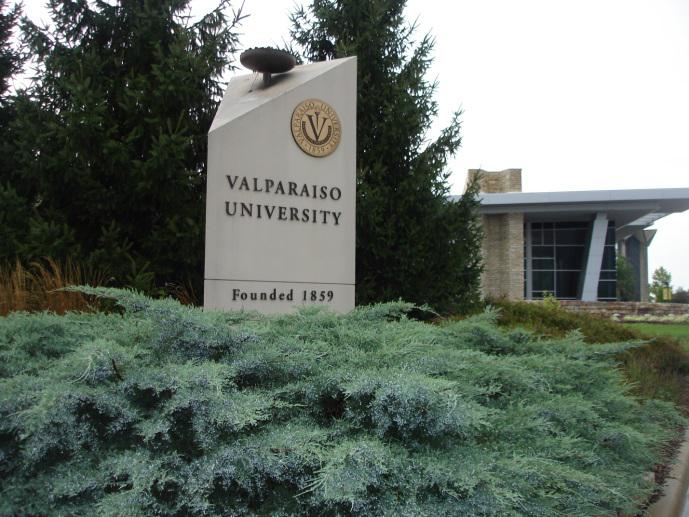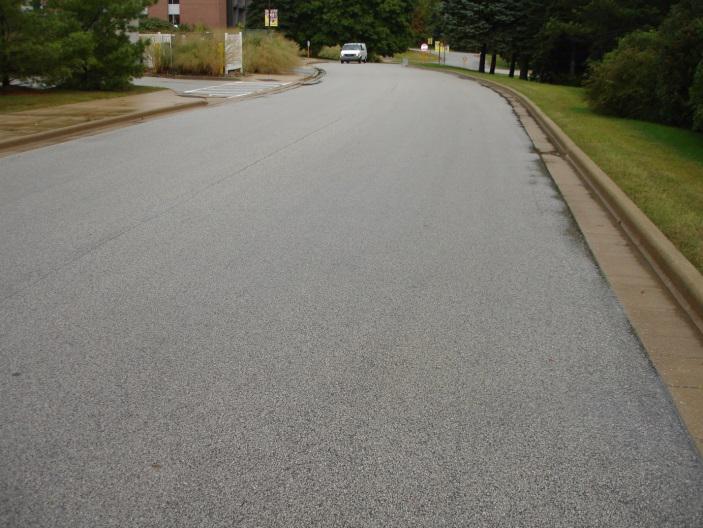ASPHALT PLUS CASE STUDY:
VALPARAISO UNIVERSITY, NORTHERN INDIANA
Valparaiso University is located in far northern Indiana, and the campus is in the center of the Lake Michigan Snow Belt. The area received substantial amounts of snow and experiences winter temperatures that often fall below 0 Degrees F. Freeze-thaw, substantial exposure to road salt and high summer temperatures make the area a hostile environment for asphalt roads.
In 2006, The University reconstructed a large portion of the campus roadway system, including parking lots and the main transportation route around campus. In addition to handling a large volume of commuter traffic, the roadwork was designed with a major campus expansion program in mind. That construction included a large number of construction vehicles and the transport of major pieces of equipment, including but not limited to a 140,000 pound generator.
Road construction was designed with several objectives in mind:
- Carry Interstate-level vehicle loads
- Low life-cycle costs
- Use of sustainable materials
2014 Road Condition, 8 Years of Service
Under the direction of Fred Plant, Valparaiso University selected crumb rubber modified asphalt produced through the dry mix process. This product is now called “Asphalt Plus.” Chemically treated crumb rubber (from waste auto tires) was added to aggregate and binder during hot mix production. The recycled rubber replaced approximately 10% of the binder in the mix design. As a result of the rubber addition, the binder PG rating was increased from 64, -22 to over 76, -22, providing excellent resistance to both reflexive cracking and rutting.
During application, this CRM asphalt did not exhibit any of the stickiness typically found with other rubber addition processes. The hot mix product was placed and compacted with ease. After seven years of service, the surface is free of any material cracking and free of potholes. When more pavement construction is required, the University plans on using Dry Mix CRM-modified rubber again. To date, the Asphalt Plus-modified surfaces have performed exceptionally well.


